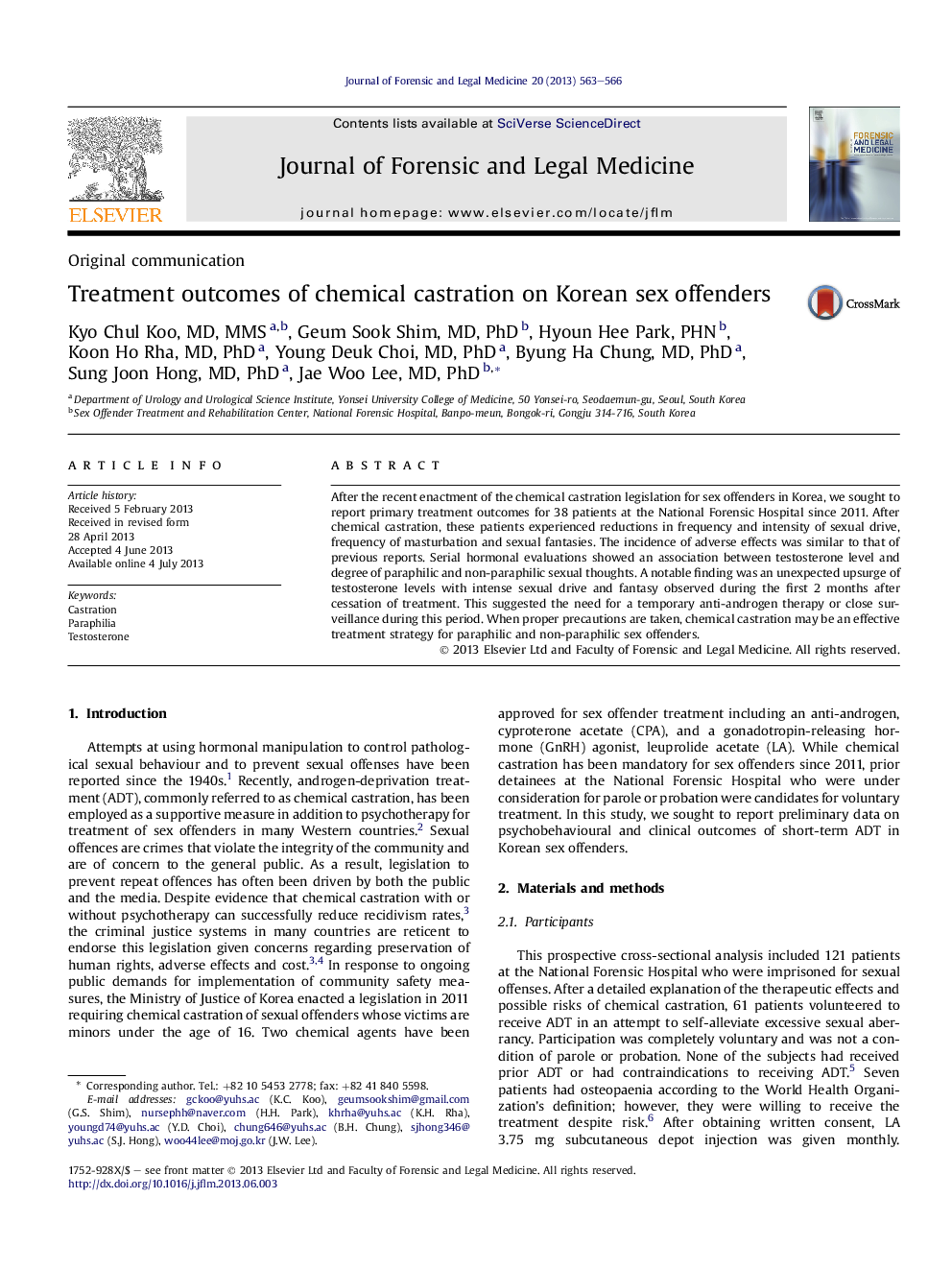| Article ID | Journal | Published Year | Pages | File Type |
|---|---|---|---|---|
| 102069 | Journal of Forensic and Legal Medicine | 2013 | 4 Pages |
After the recent enactment of the chemical castration legislation for sex offenders in Korea, we sought to report primary treatment outcomes for 38 patients at the National Forensic Hospital since 2011. After chemical castration, these patients experienced reductions in frequency and intensity of sexual drive, frequency of masturbation and sexual fantasies. The incidence of adverse effects was similar to that of previous reports. Serial hormonal evaluations showed an association between testosterone level and degree of paraphilic and non-paraphilic sexual thoughts. A notable finding was an unexpected upsurge of testosterone levels with intense sexual drive and fantasy observed during the first 2 months after cessation of treatment. This suggested the need for a temporary anti-androgen therapy or close surveillance during this period. When proper precautions are taken, chemical castration may be an effective treatment strategy for paraphilic and non-paraphilic sex offenders.
